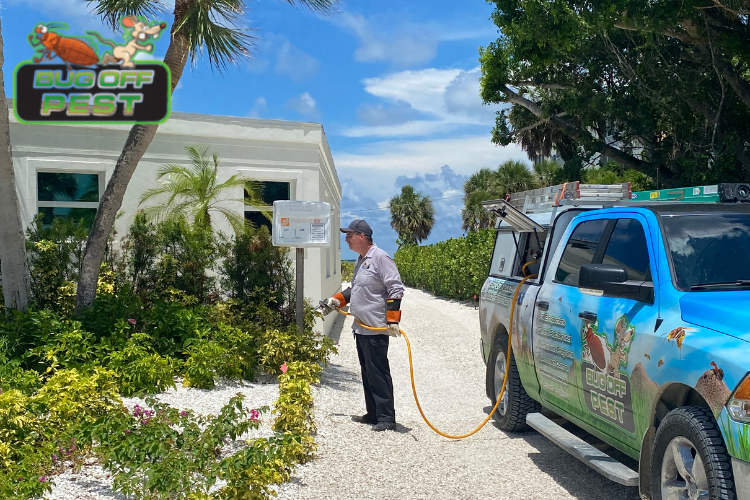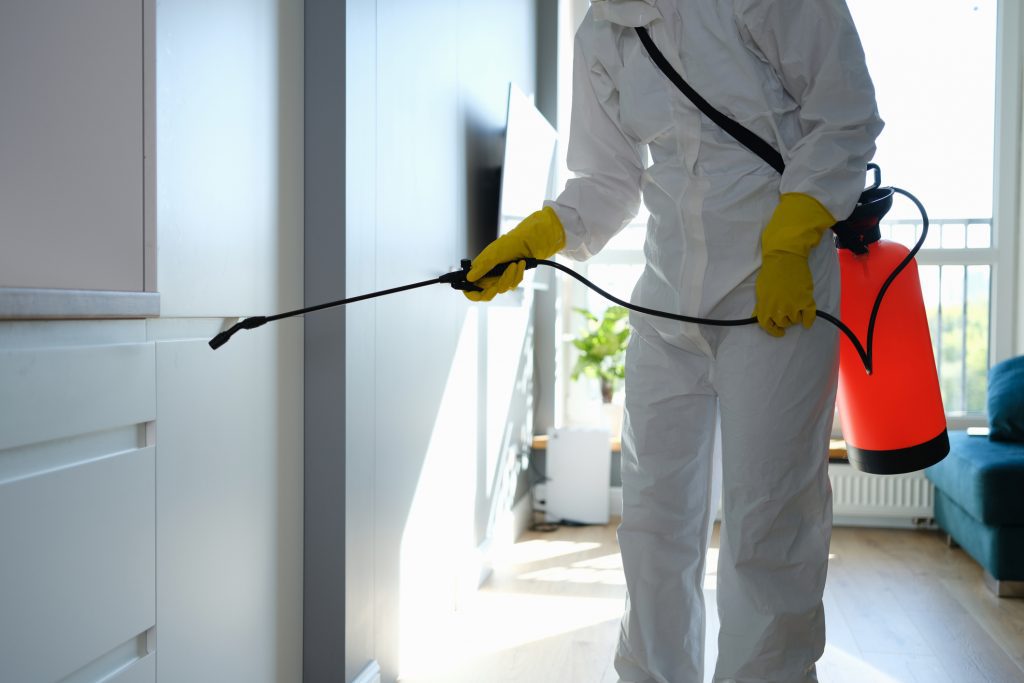Experience top-quality Pest Control in Port Charlotte for long-term protection.
Experience top-quality Pest Control in Port Charlotte for long-term protection.
Blog Article
Checking Out Ingenious Methods and Products for Efficient Insect Control
The landscape of pest control is developing, marked by the emergence of ingenious methods and items developed to boost efficiency and sustainability. From clever catches equipped with advanced monitoring systems to organic methods that use all-natural predators, these innovations present a standard shift in how we approach pest administration. Environment-friendly chemical alternatives and scent interruption techniques supply targeted services that align with ecological stewardship. As the market comes to grips with these growths, a closer assessment discloses not only their implications however also the prospective obstacles that might emerge in their execution.
Smart Traps and Checking Solutions
Exactly how can contemporary innovation enhance bug management? One significant innovation is the advancement of wise catches and monitoring systems, which provide real-time data and analytics for effective bug control. These systems use sensing units and cordless technology to identify pest activity, notifying building supervisors and bug control experts to infestations before they rise.
Smart catches are geared up with features such as bait terminals that draw in parasites and catch them effectively. These catches can be kept track of from another location, permitting prompt interventions and reducing the requirement for extensive chemical applications. The assimilation of equipment understanding algorithms enables these systems to differentiate in between target pests and non-target types, improving the accuracy of bug control procedures.
Additionally, the data gathered from wise traps can be evaluated to recognize patterns in bug actions and ecological variables adding to infestations (Pest Control in Port Charlotte). This info is invaluable for developing targeted pest administration approaches tailored to certain atmospheres. By embracing smart catches and keeping an eye on systems, insect control specialists can improve their operational efficiency and minimize the ecological influence of bug administration, inevitably leading to much safer and a lot more lasting methods in the sector
Biological Bug Control Approaches
Using natural killers and parasites, organic insect control methods offer an environmentally pleasant choice to chemical treatments. This technique includes the introduction or enhancement of certain organisms that can naturally regulate pest populations, thus reducing reliance on synthetic pesticides. Usual examples consist of the use of ladybugs to control aphid problems and parasitical wasps to target caterpillars.

Organic control can be categorized into 3 main methods: timeless, augmentative, and conservation. Classical biological control involves importing natural adversaries from the bug's indigenous habitat, while augmentative control includes increasing the population of existing natural enemies through releases. Conservation techniques concentrate on developing problems that support these beneficial microorganisms in the ecological community.
It typically needs a detailed evaluation of parasite dynamics and the life cycles of both the insects and their natural opponents. As understanding of ecological concerns expands, biological pest control techniques are increasingly recognized for their sustainable function in incorporated insect monitoring programs.
Eco-Friendly Chemical Alternatives
Environment-friendly chemical options supply a viable remedy for parasite monitoring that reduces environmental effect while effectively controlling pest populaces. These options are stemmed from natural resources and are very carefully formulated to target specific parasites without harming beneficial microorganisms, making them a vital part of sustainable pest control strategies.
Amongst one of the most effective environmentally friendly alternatives are plant-based pesticides, my review here such as neem oil and pyrethrin, which are stemmed from the seeds and flowers of different plants. These compounds interfere with the life cycles of pests, reducing their populaces without the toxic effects connected with standard pesticides - Pest Control in Port Charlotte. In addition, vital oils like peppermint and clove oil display repellent homes, further boosting their utility in pest management

Additionally, eco-friendly chemical choices typically damage down faster in the setting, minimizing the threat of soil and water contamination. This characteristic aligns with the raising customer demand for sustainable techniques in agriculture and metropolitan insect control. As research study remains to advancement, the growth of ingenious environment-friendly you could try this out formulas will certainly better enhance efficacy and expand application locations, allowing pest administration experts to take on greener, extra liable approaches in their techniques while guarding human wellness and the setting.
Pheromone Interruption Methods
Another ingenious technique in sustainable parasite management is the use of pheromone interruption methods. These methods exploit the natural chemical signals, or pheromones, that bugs make use of for communication, particularly in mating habits. By interrupting these signals, bug populations can be properly handled without resorting to harmful chemicals.
Scent catches are commonly used in this approach. Over time, this can lead to a substantial decrease in bug populations.

Integrated Pest Management Techniques
Effective bug control commonly needs a detailed strategy, and Integrated Bug Administration (IPM) methods supply a structure for attaining this objective. IPM integrates numerous administration techniques to reduce pest populations while lowering dependence on chemical pesticides. This diverse strategy starts with extensive surveillance and recognition of parasites, enabling targeted interventions based on details parasite stress.
Cultural methods, such as crop rotation and cleanliness, play a crucial function in preventing insect establishment. Organic controls, consisting of natural predators and parasitoids, are employed to maintain parasite populaces at workable levels. When needed, discerning chemical treatments are applied, highlighting lower poisoning to non-target types and the setting.
By employing this all natural method, IPM not only boosts parasite control efficiency yet also contributes to long-lasting environmental balance. Ultimately, Integrated Parasite Administration stands for a forward-thinking solution that aligns agricultural productivity with environmental stewardship, making it necessary in contemporary bug control methods.

Final Thought
In final thought, the combination of ingenious techniques and products for effective bug control represents a significant development in sustainable pest administration. Smart catches and keeping an eye on systems, organic insect control approaches, green chemical alternatives, and pheromone disturbance methods jointly enhance the performance of bug monitoring techniques.
Report this page